Thought Lamp

A smart lamp designed to facilitate action centered ambient computing. As a computer the lamp stays in the background, acting as a student's desk lamp, until the student passes it notes, or asks it a question using voice.
Design goals: Designing a novel interface paradigm that's more mindful and less engagement driven.
Responsibilities: Conducted user research, designed a novel design framework to form the basis of the operating system that enables distraction free computing, proposed an product-service-ecology of AI powered ambient displays, and prototyped software and hardware interactions.


Motivation
Our environment, circumstances and experiences shape our wants and needs, we fulfill those needs by performing actions using tools. The current computing paradigms are too tool centric, i.e. they try put everything behind a touch-screen device. The systems created by such multi-tasking tools often reward engagement.

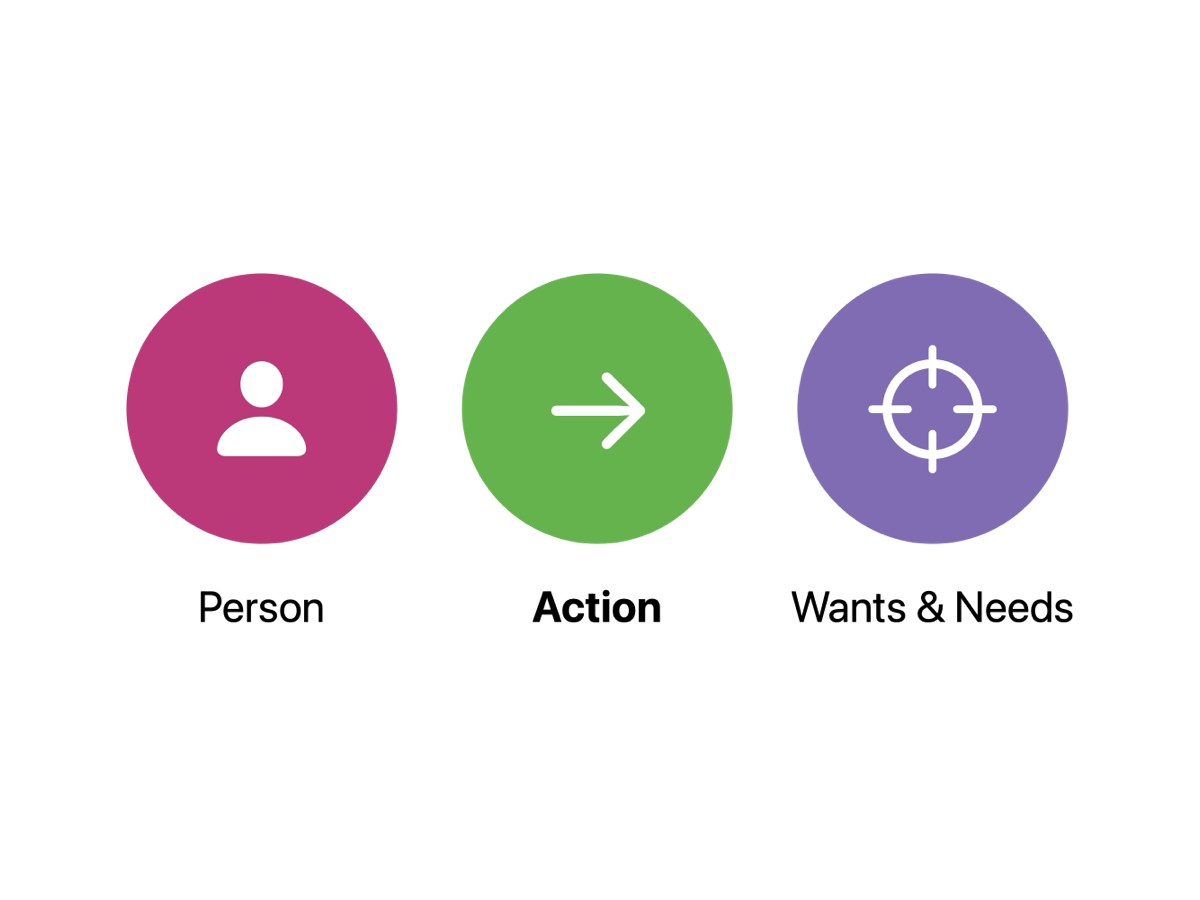


How does it work?
Under the hood, the action centered system is built on a novel agentic AI architecture. That mindfully uses LLMs to coordinate and pick different actions. The action is then executed by the computer.
For example, complex mathematical problems can be solved through traditional computing, in a more reliable and faster way than LLMs. The ambient lamp doesn’t use an LLM to answer the mathematical problems. It delegates the task to a dedicated action that would solve that.
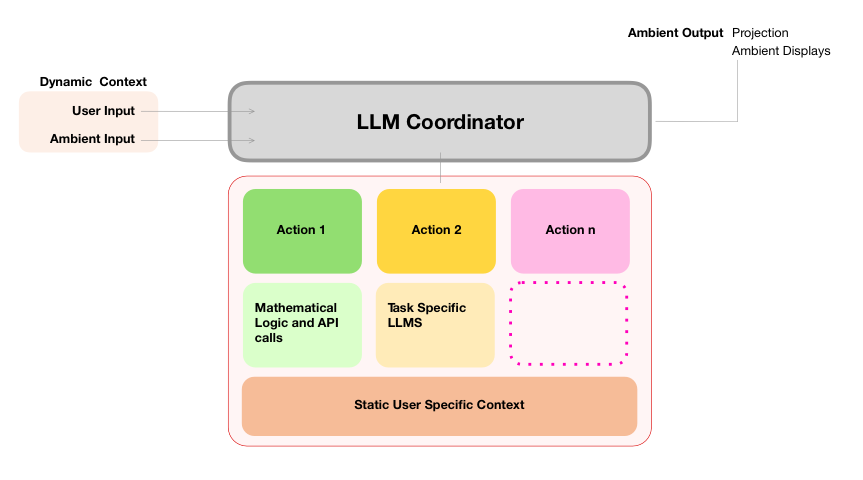

What is an action?
An action constitutes of a perform logic that performs the task it’s designed to do. It takes essential user input, but also considers the user-context, when performing the action. The output constitutes of the response and the medium it’s conveyed in.
So if the output for weather conditions is rustling of leaves, the ambient plant is notified about it to display the information.
The lamp acts as a central contextual hub for the action centric sytsem. Taking in the context from the IoT devices in the room and relaying it to the different connected ambient displays.
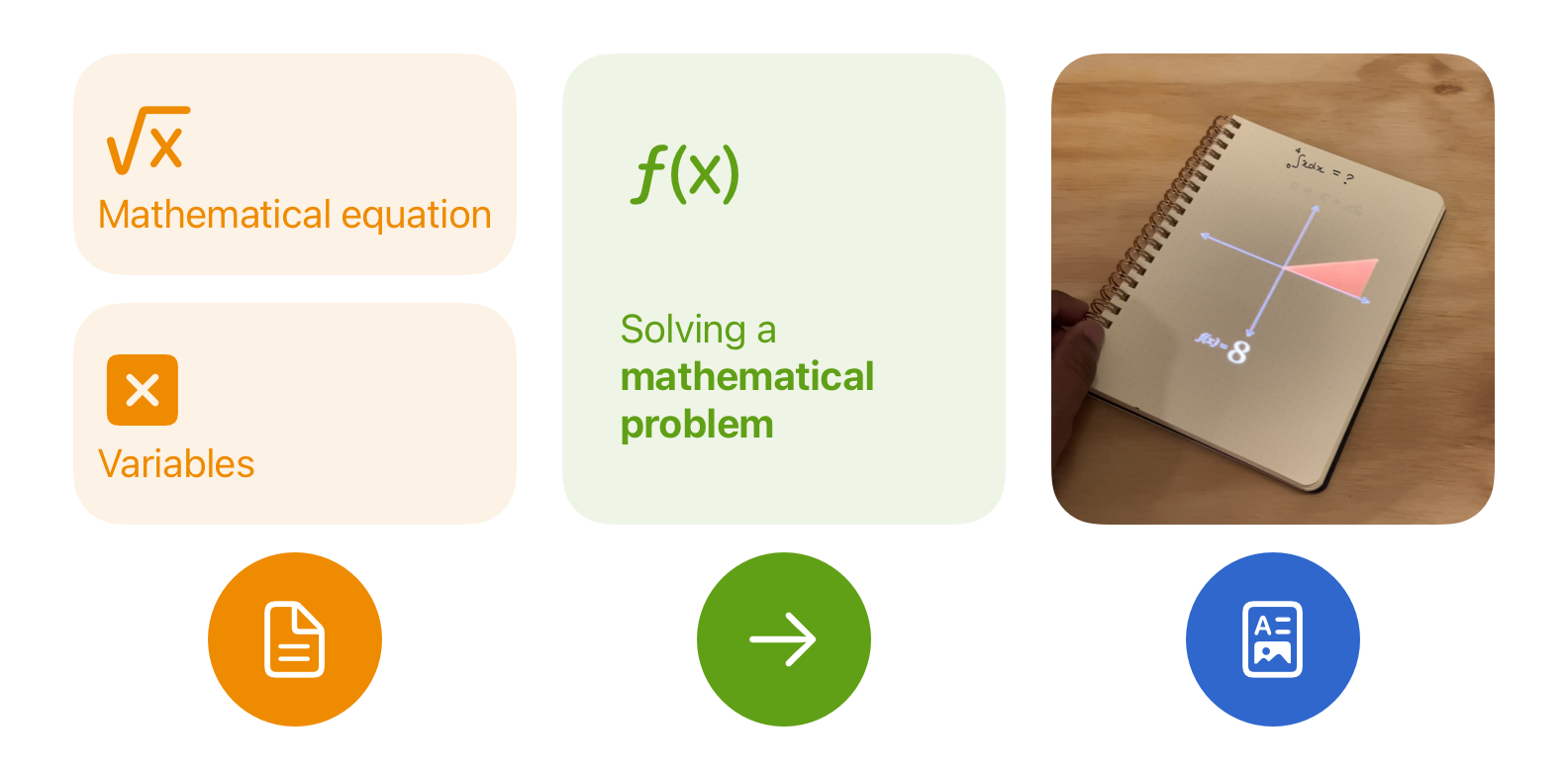
A platform-service-ecology of ambient displays
When tools follow actions, a computer’s outputs are no longer restricted to screens.
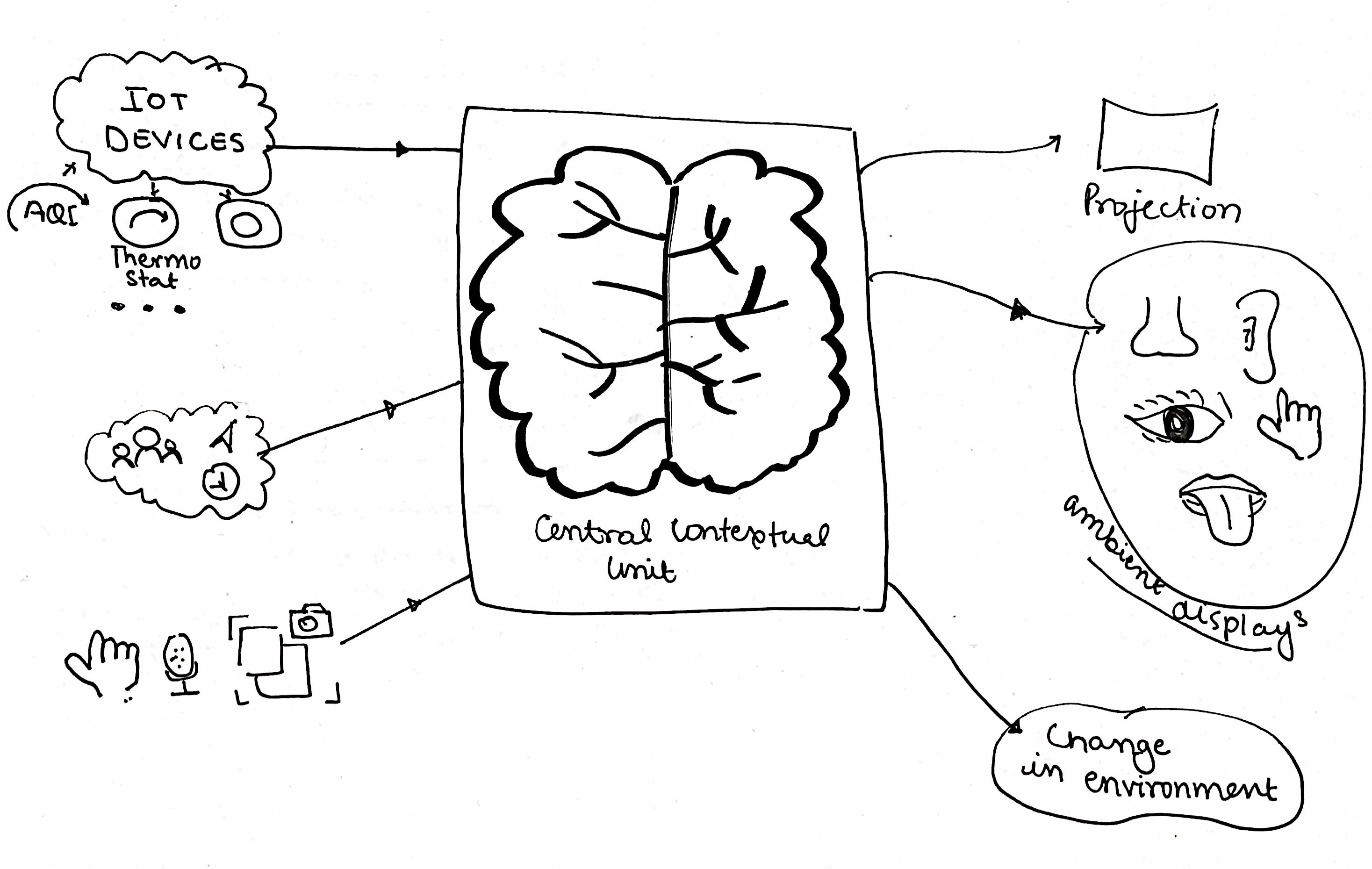
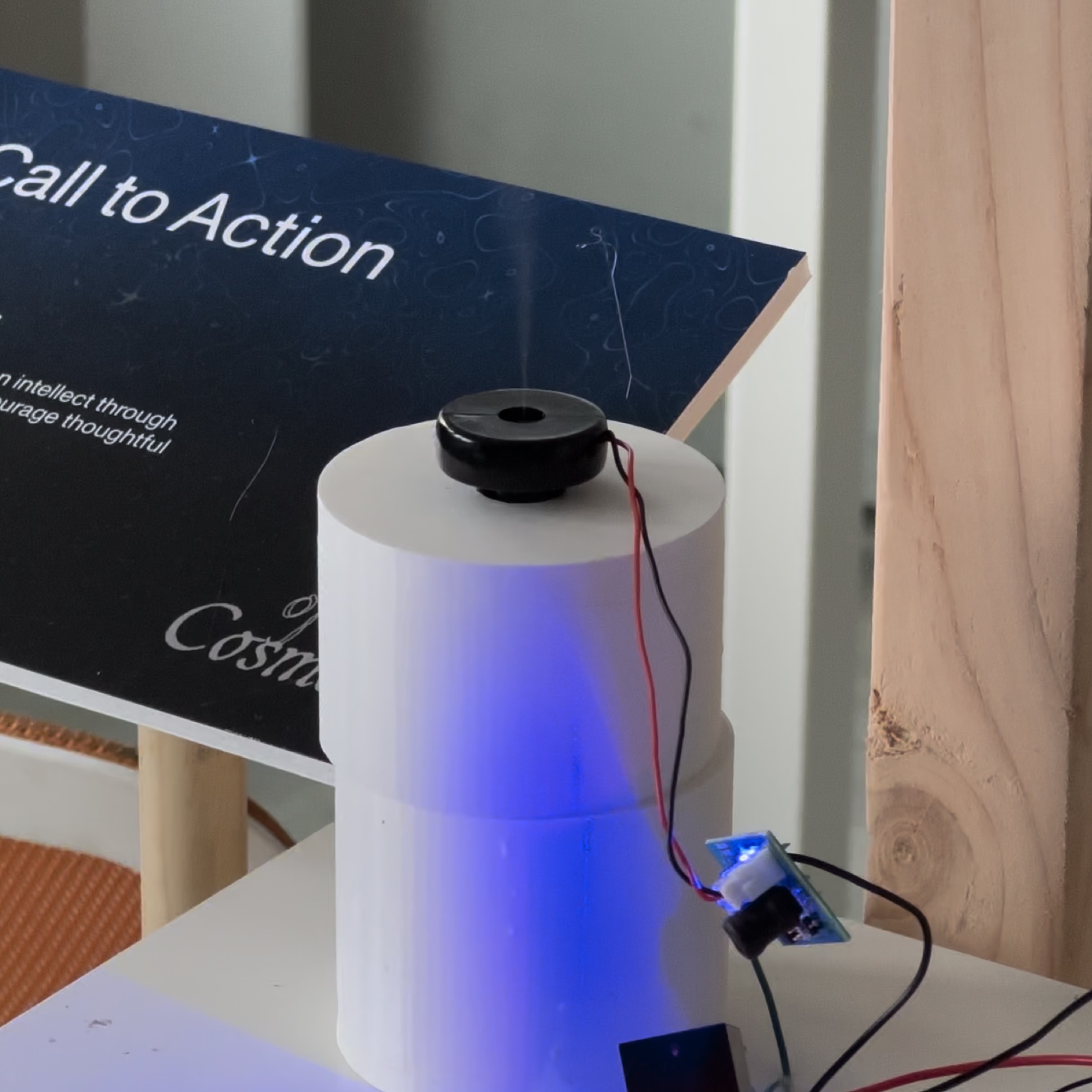
The olfactory reminder is a way of reminding people of different things through smells.
It’s an abstract ambient display that can be configured based on student’s needs
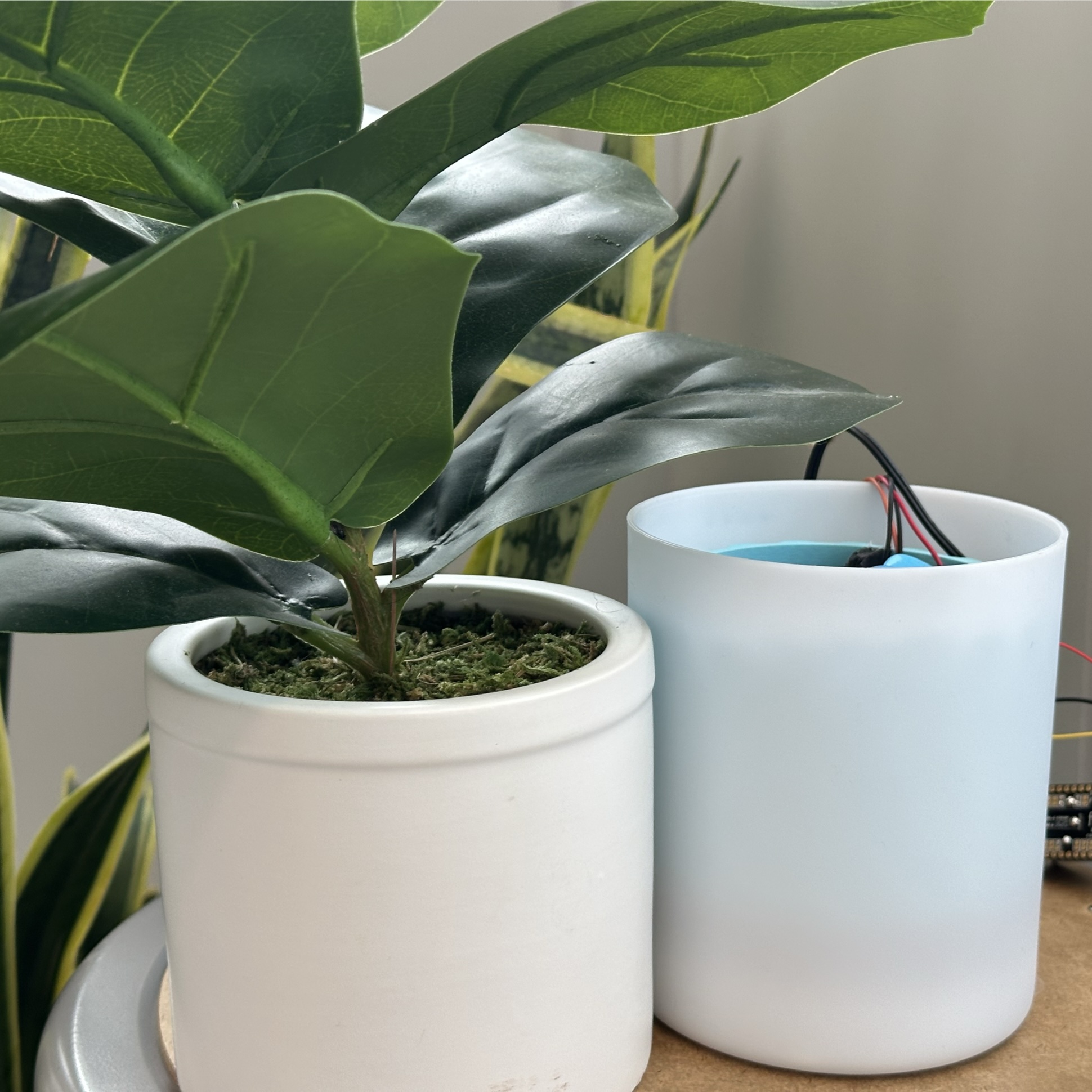
The ambient plant is an extension that can be placed under any plant to have the leaves move when it blows wind. It turns the plant into an ambient display for information.